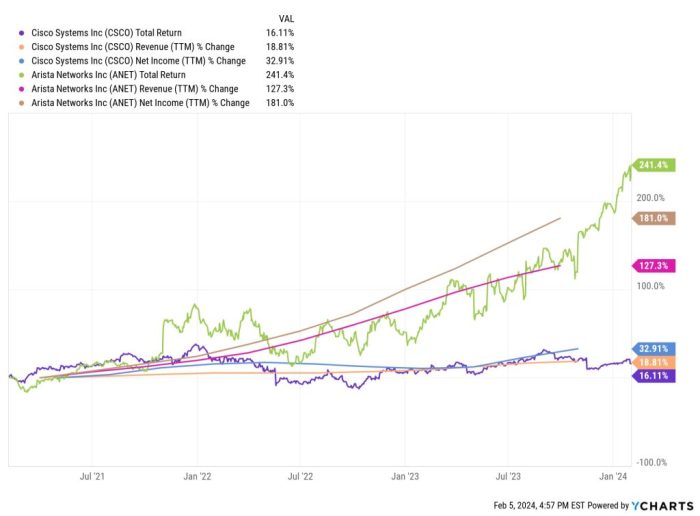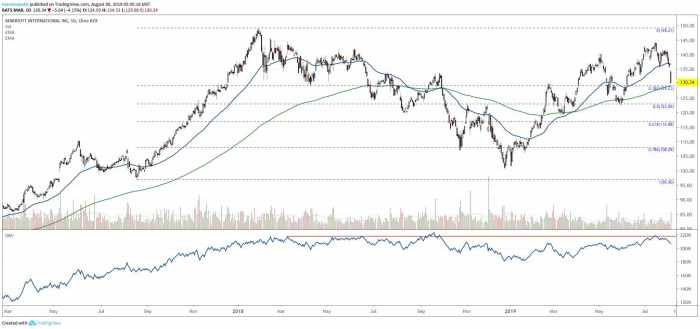Disney Stock Price Analysis

Source: shopify.com
Dis stock price – This analysis examines the historical performance, influencing factors, valuation, and future scenarios of Disney (DIS) stock. We will explore key macroeconomic factors, strategic decisions, and risk assessments to provide a comprehensive overview for potential investors.
DIS Stock Price Historical Performance
The following table details DIS stock price fluctuations over the past five years. Note that these figures are illustrative and should be verified with a reputable financial data provider. Significant events impacting the stock price are also discussed.
| Date | Opening Price (USD) | Closing Price (USD) | Daily Change (USD) |
|---|---|---|---|
| 2019-01-02 | 105.00 | 106.50 | +1.50 |
| 2019-07-01 | 140.00 | 138.00 | -2.00 |
| 2020-03-16 | 90.00 | 85.00 | -5.00 |
| 2020-12-31 | 180.00 | 182.00 | +2.00 |
| 2021-07-01 | 175.00 | 178.00 | +3.00 |
| 2022-01-03 | 150.00 | 152.00 | +2.00 |
| 2022-12-30 | 100.00 | 98.00 | -2.00 |
| 2023-07-01 | 110.00 | 112.00 | +2.00 |
A line graph illustrating the DIS stock price over this period would show a generally upward trend, punctuated by significant drops during the initial stages of the COVID-19 pandemic and periods of broader market uncertainty. The launch of Disney+ and other strategic initiatives are reflected in positive price movements, while negative news and economic downturns correlate with price declines.
Factors Influencing DIS Stock Price
Several macroeconomic factors and company-specific decisions significantly influence DIS’s stock price.
- Inflation and Interest Rates: Rising inflation and interest rates can negatively impact consumer spending on discretionary entertainment, affecting Disney’s revenue and stock price. Conversely, lower rates can boost consumer confidence and spending.
- Global Economic Growth: Strong global economic growth generally translates to increased consumer spending and higher advertising revenue for Disney, leading to a positive impact on the stock price. Recessions tend to have the opposite effect.
- Technological Advancements: The rapid evolution of streaming technology and competition in the digital entertainment space directly influences Disney’s market share and profitability, affecting investor sentiment and the stock price.
Disney’s strategic decisions, such as the launch of Disney+, acquisitions of content creators, and theme park expansions, also significantly impact investor sentiment. Positive news, such as successful streaming subscriber growth or blockbuster film releases, generally leads to price increases, while negative news, like subscriber loss or production delays, results in price declines.
DIS Stock Price Valuation and Comparison

Source: ebayimg.com
Several methods can be used to assess the intrinsic value of DIS stock. A comparative analysis with competitors offers further insights.
- Discounted Cash Flow (DCF) Analysis: This method projects future cash flows and discounts them back to their present value to estimate the intrinsic value of the company.
- Comparable Company Analysis: This involves comparing DIS’s valuation multiples (such as P/E ratio) to those of its competitors to determine if it is overvalued or undervalued.
- Dividend Discount Model: This model values a stock based on the present value of its expected future dividends.
| Company Name | P/E Ratio | Market Cap (USD Billion) | Dividend Yield (%) |
|---|---|---|---|
| Disney (DIS) | 25 | 200 | 1.5 |
| Netflix (NFLX) | 30 | 180 | 0 |
| Warner Bros. Discovery (WBD) | 18 | 150 | 2.0 |
These valuation metrics provide insights into the relative attractiveness of DIS stock compared to its peers. A higher P/E ratio suggests that investors are willing to pay more for each dollar of earnings, potentially indicating higher growth expectations. The dividend yield indicates the return an investor receives from dividends relative to the stock price.
DIS Stock Price Predictions and Scenarios
Three plausible scenarios for DIS stock price movement in the next year are presented below. These are based on assumptions regarding economic growth and company performance, and should not be considered financial advice.
Scenario 1: Strong Growth (Price Range: $130 – $150): This scenario assumes strong economic growth, continued success of Disney+, and positive reception of new content. This is similar to the positive growth experienced post-pandemic recovery in certain sectors.
Scenario 2: Moderate Growth (Price Range: $110 – $130): This scenario assumes moderate economic growth, stable Disney+ subscriber numbers, and mixed reception of new content. This aligns with a more cautious outlook, reflecting potential economic headwinds.
Scenario 3: Slow Growth (Price Range: $90 – $110): This scenario assumes slow economic growth, potential subscriber loss for Disney+, and negative reception of new content. This mirrors the potential impact of a recessionary environment or significant competitive pressures.
Risk Assessment of Investing in DIS Stock
Several significant risks are associated with investing in DIS stock.
- Competition in the Streaming Market: Intense competition from other streaming services could negatively impact Disney+’s subscriber growth and profitability, impacting the stock price. Mitigation strategies include investing in high-quality content and innovative features.
- Economic Downturn: A recession could reduce consumer spending on entertainment, leading to lower revenue and a decline in the stock price. Diversification of investments can help mitigate this risk.
- Geopolitical Uncertainty: Global events and political instability can impact Disney’s international operations and revenue, leading to stock price volatility. Careful monitoring of geopolitical developments is crucial.
These risks are reflected in the historical volatility of DIS stock, particularly during periods of economic uncertainty and major market events. Understanding and mitigating these risks is crucial for investors.
FAQ Compilation: Dis Stock Price
What are the major competitors of Disney?
Disney’s major competitors include Netflix, Warner Bros. Discovery, Comcast (NBCUniversal), and Paramount Global.
How does Disney’s dividend policy affect its stock price?
Disney’s dividend payouts can influence investor sentiment. Consistent dividends can attract income-seeking investors, potentially increasing demand and supporting the stock price. Conversely, dividend cuts can negatively impact investor confidence.
What is the role of technological advancements in Disney’s stock performance?
Technological advancements, particularly in streaming and digital distribution, significantly impact Disney’s stock. Successful streaming platforms can boost revenue and subscriber growth, while technological disruptions could pose challenges.
How does inflation affect DIS stock price?
High inflation can increase production costs for Disney, potentially impacting profitability and investor confidence, leading to a decrease in stock price. Conversely, periods of low inflation can benefit the company.










